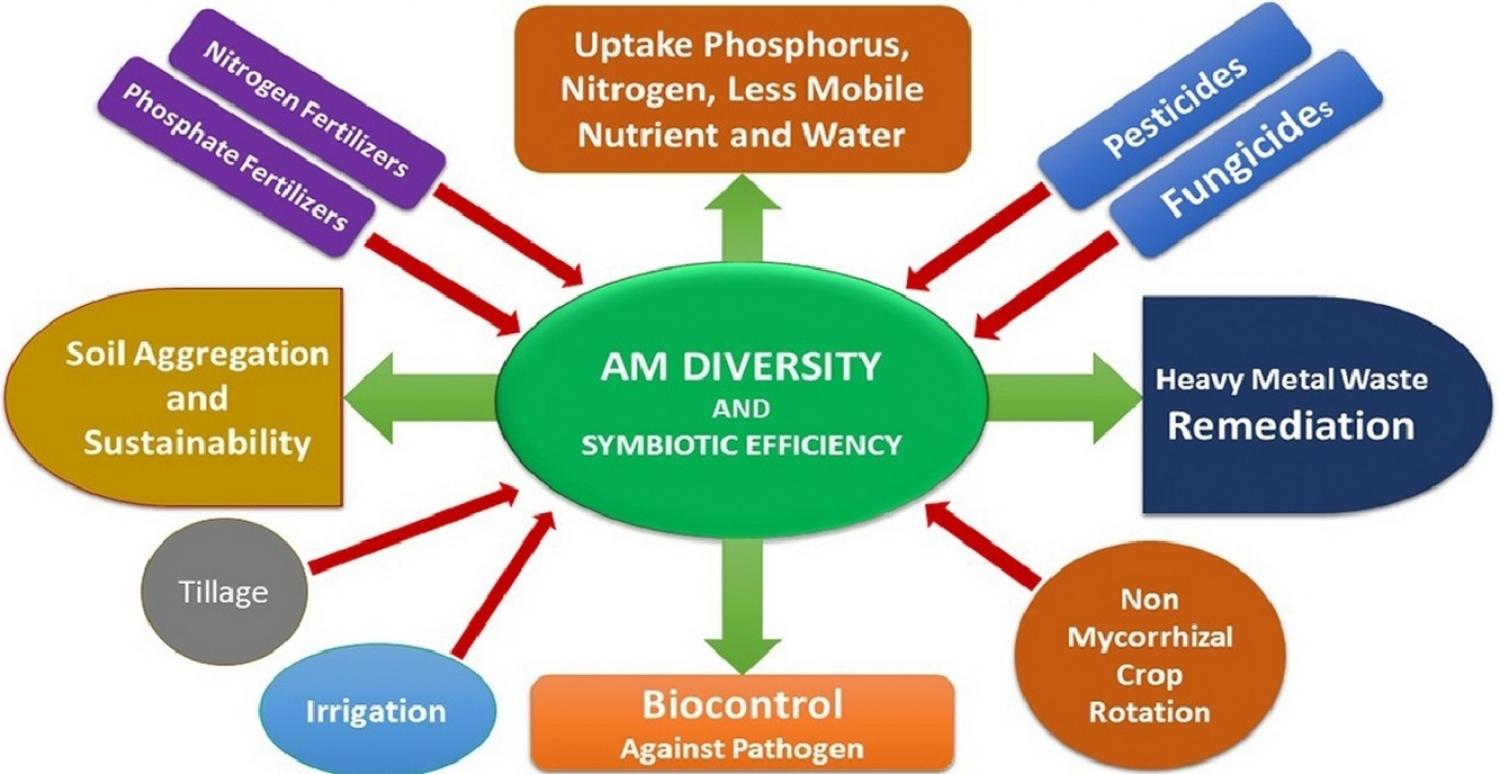
The rapid growth of human population on globe and reduction in agricultural land exerts huge pressure on crop productivity, food security and soil health; specially, in developing countries. Improper land management with excessive dependency on chemical fertilizers and agrochemicals to secure productivity tolls on human health, environment, biodiversity and sustainability. The utilization of arbuscular mycorrhizal fungi (AMF) as bio-fertilizer and in consortia with other beneficial microbes has become an increasing area of research in agriculture and life sciences. Former investigations revealed the positive influence of AM in nutrition, growth, yield of crops, soil quality increasing biological soil fertility and pathogen resistance. AMF symbionts are highly beneficial in plant abiotic stress tolerance. Along with other beneficial rhiozobacteria AM is almost substitute of chemical fertilizers in modern sustainable organic agricultural systems. But conventional agriculture in most countries is beyond to reach these benefits of AM. The issues which hinder the utilization also contradict to sustainability to some degrees. The present review highlights on the issues of hindrances in applicability of AM to the agricultural fields focusing on the mode of functions, maintaining soil and environmental sustainability; interactions with other biofertilizers and impact of various agrochemicals and agro-practices including tillage and crop rotation. The procedures to avail the full benefit of AM in agricultural field for sustainable system are discussed here.
